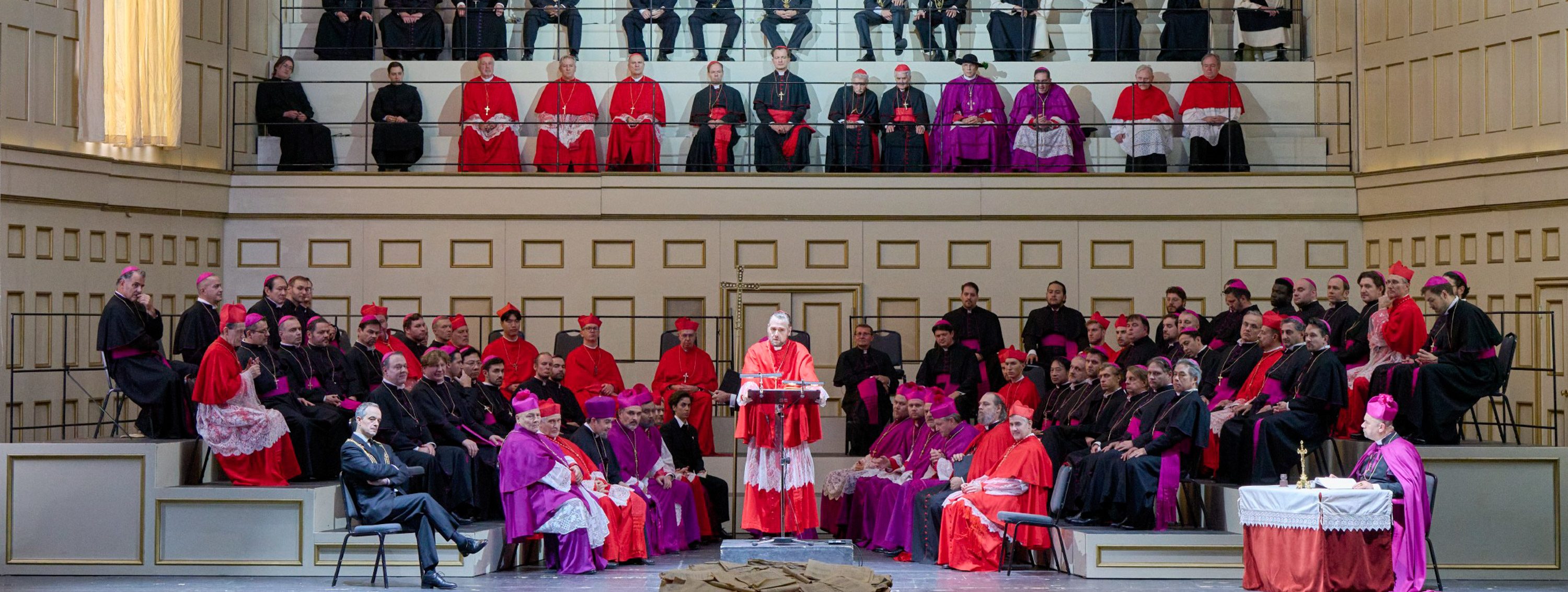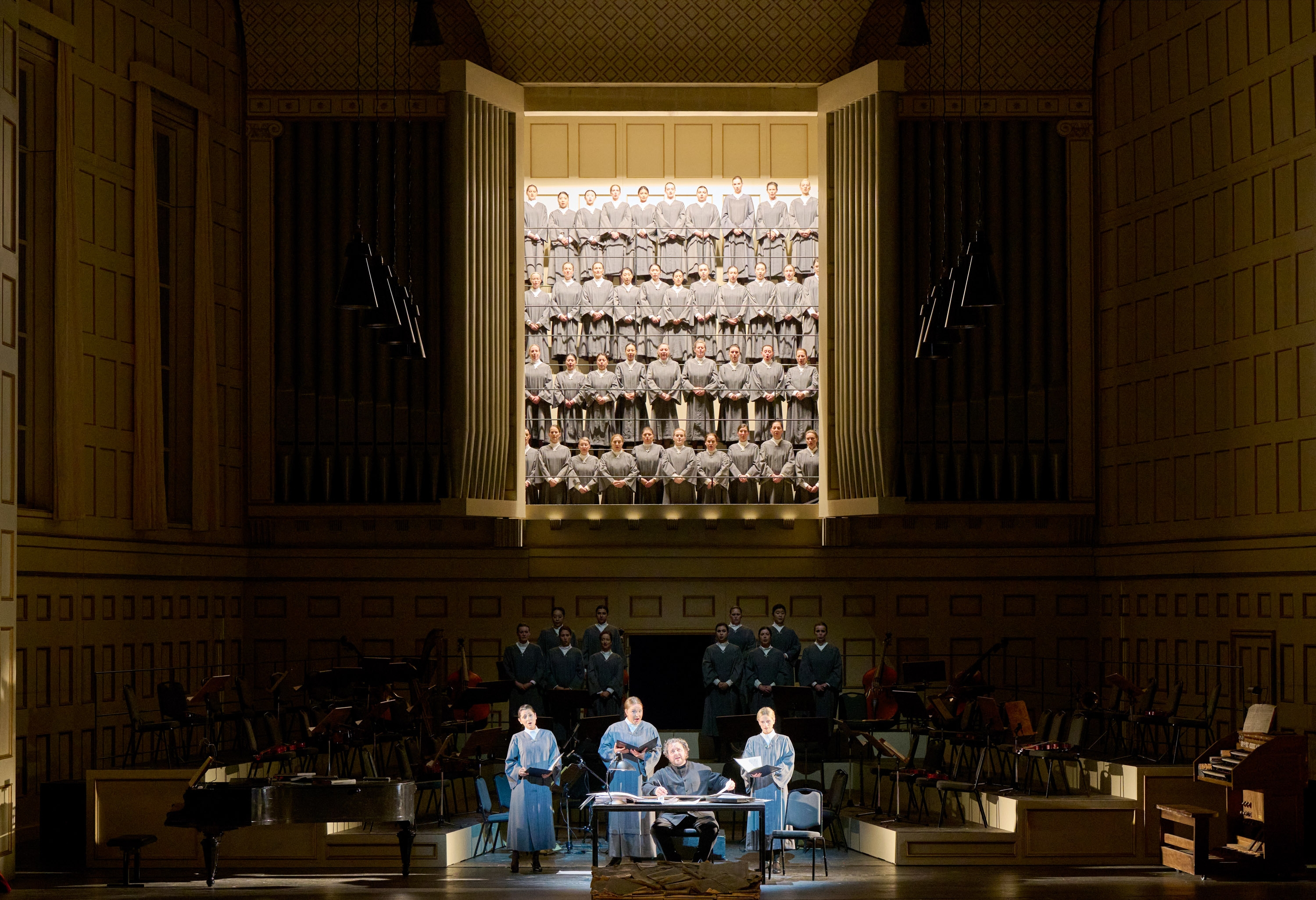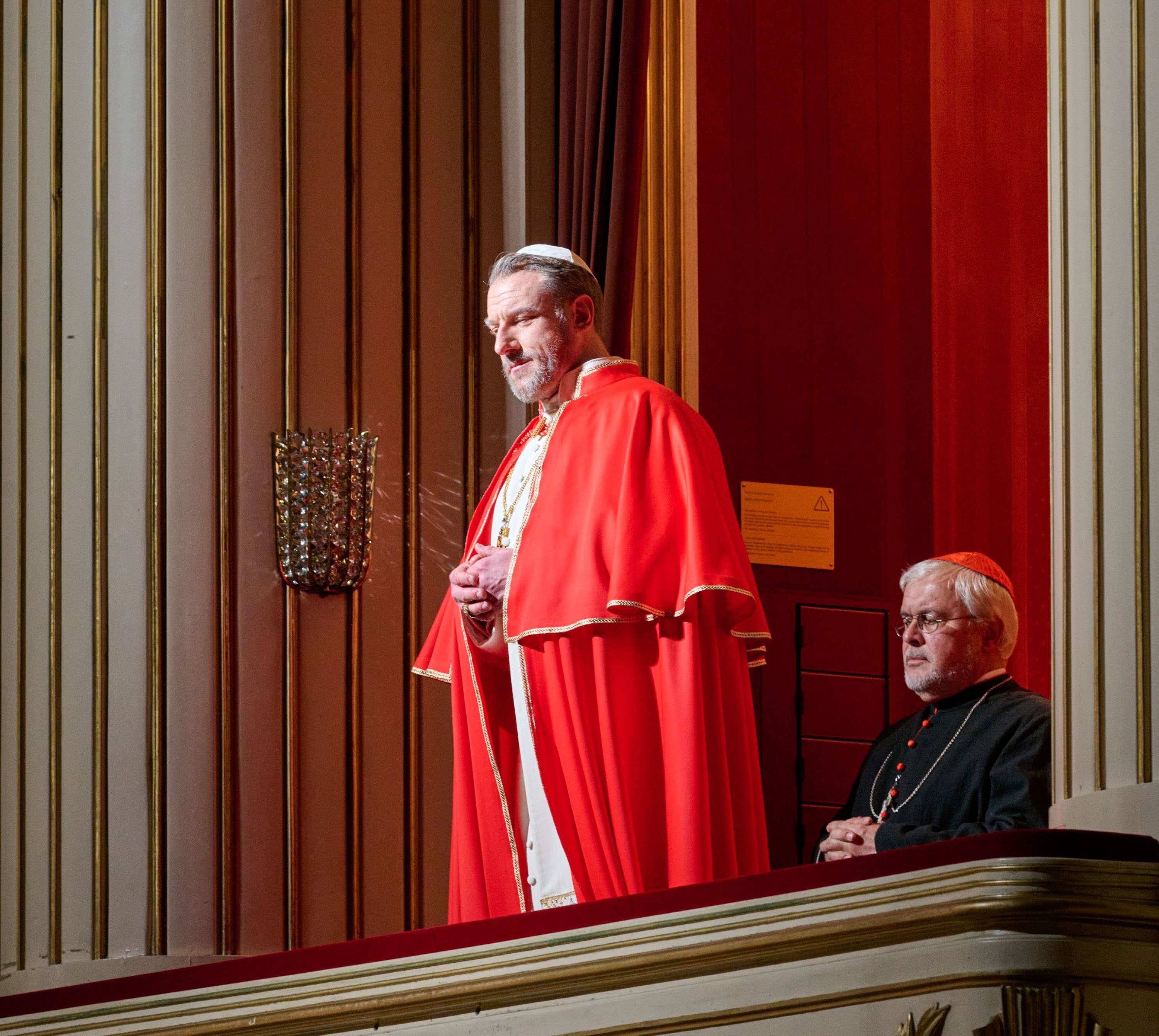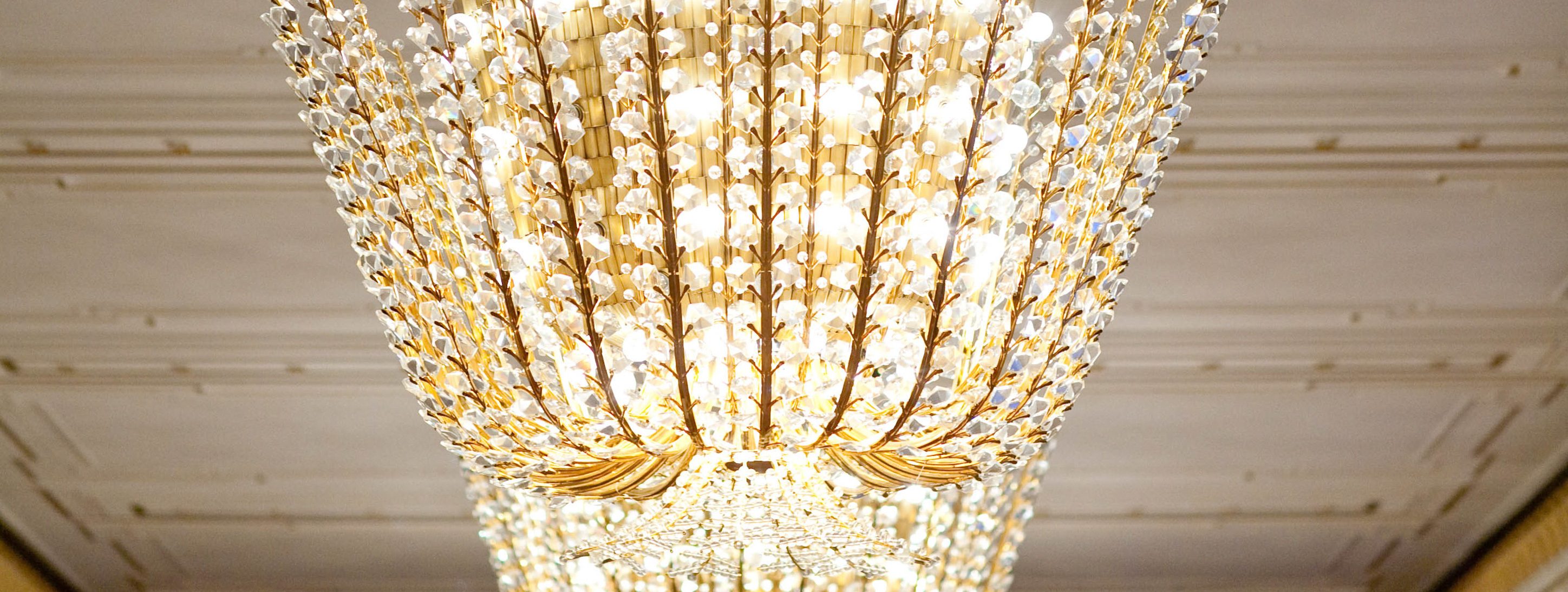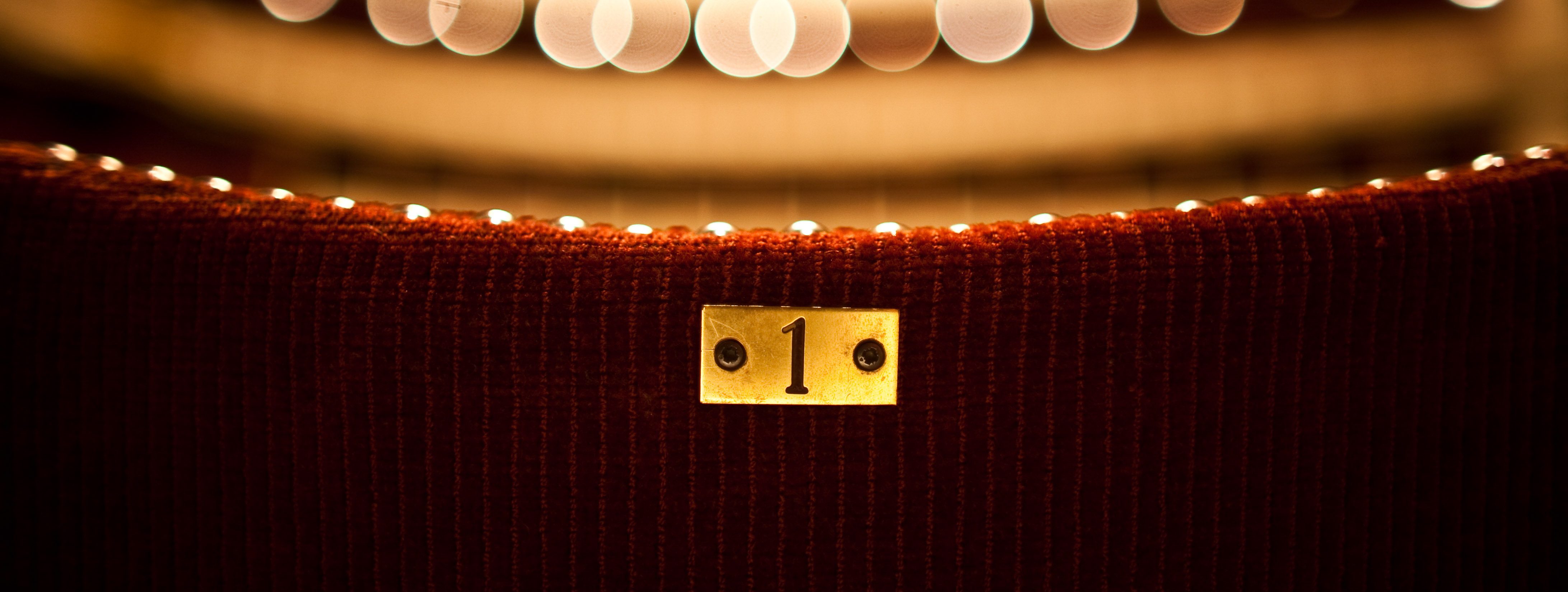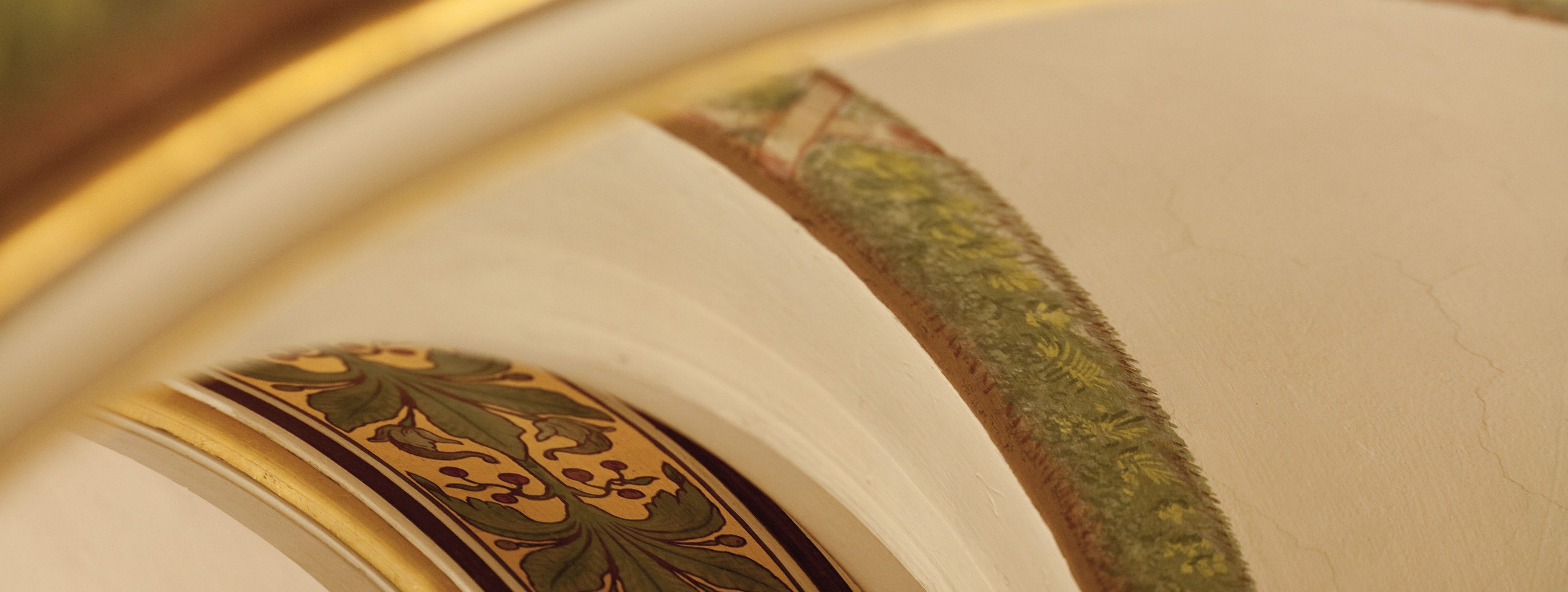About the production
The central theme in Pfitzner's Palestrina is the mystery of artistic inspiration.
Pfitzner sees the anchoring of the creative artist in his own inner world, which stands in sharp contrast to the hustle and bustle of external reality, as a prerequisite for this. Against the backdrop of the Council of Tridentine, the legend of the Renaissance composer Palestrina is told, who, in a creative ecstasy, creates the masterpiece in one night with which he saves an entire musical tradition from destruction.
Palestrina
Storyline


Silla, Palestrina's young pupil, has turned to the new direction in music coming from Florence and wants to leave his master.
Palestrina's son Ighino does not feel like singing. He is worried about his father, who has not written any music since the death of his wife Lukrezia and is sadly facing old age. Cardinal Borromeo sends his friend Palestrina a commission to compose a mass. This should convince the Pope that the tradition of polyphony can be combined with the clarity of the divine word. Otherwise, polyphonic music would be banned from the divine service by council decree. Palestrina does not see himself in a position to fulfill the cardinal's demand. Borromeo leaves him angrily. The masters of the art of music from the past appear to Palestrina and urge him to write the mass. In deep despair, he remains alone. Then he hears angelic voices, among them the voice of his wife Lucretia. As if under duress, he writes down what these voices tell him. In the morning, Ighino and Silla find the sleeping master. Ighino collects the scattered sheets of music: it is the completed mass composition that Palestrina wrote in one night.


The final session of the council does not go as the papal legates Morone and Novagerio would like.
They are commissioned by Rome to bring the meeting to an end, but the clash of political interests between church dignitaries, princes and nations prevents unified resolutions. Borromeo had Palestrina sent to prison. He put off the Council as far as the new mass composition was concerned. When a dispute arises between the Cardinal of Lorraine and Count Luna, Luna is provoked into making a provocative statement. Chaos descends on the council and the meeting is adjourned. Infected by their masters' agitation, the servants clash. Prince Archbishop Madruscht has the quarrellers shot and the survivors tortured.


Palestrina has returned home from prison broken. He is no longer involved in what is happening around him.
Ighino explains to him what has happened: in order to save his father, Ighino has handed in the loose sheet music to the college. Mass is now being sung in the papal chapel.
Singers in the chapel announce the joyful news that the mass has made a deep impression on the Pope and the cardinals. The Pope visits Palestrina personally to honor him. Borromeo, overwhelmed by the feeling of his guilt, begs Palestrina's forgiveness.
The master remains alone, lost in thought. He is barely touched by Ighino's joy and the news of Silla's final departure: Palestrina has completed his life's work.
Director and set designer Herbert Wernicke created a kind of large concert hall with an organ as the setting for the action. He deliberately did not want to recreate the small room of a poor composer, but to create a space in which the music itself is thematized. At the same time, the white, gold and beige-gold of the stage set reflects the building of the Vienna State Opera, which reopened in 1955. This space is transformed by the different people who populate it in the course of the story.
The opera's libretto was also written by the composer. In terms of form, Pfitzner created a triptych with Palestrina: the first and third acts show the world of the artist Palestrina, while the middle second act is intended to reflect the hustle and bustle of the outside world, which is hostile to the work of the genius.
